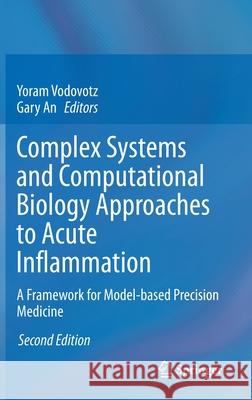Complex Systems and Computational Biology Approaches to Acute Inflammation: A Framework for Model-Based Precision Medicine » książka
topmenu
Complex Systems and Computational Biology Approaches to Acute Inflammation: A Framework for Model-Based Precision Medicine
ISBN-13: 9783030565091 / Angielski / Twarda / 2020 / 312 str.
Complex Systems and Computational Biology Approaches to Acute Inflammation: A Framework for Model-Based Precision Medicine
ISBN-13: 9783030565091 / Angielski / Twarda / 2020 / 312 str.
cena 803,21
(netto: 764,96 VAT: 5%)
Najniższa cena z 30 dni: 771,08
(netto: 764,96 VAT: 5%)
Najniższa cena z 30 dni: 771,08
Termin realizacji zamówienia:
ok. 22 dni roboczych.
ok. 22 dni roboczych.
Darmowa dostawa!
Kategorie BISAC:
Wydawca:
Springer
Język:
Angielski
ISBN-13:
9783030565091
Rok wydania:
2020
Wydanie:
2021
Ilość stron:
312
Waga:
0.63 kg
Wymiary:
23.39 x 15.6 x 1.91
Oprawa:
Twarda
Wolumenów:
01
Dodatkowe informacje:
Wydanie ilustrowane











